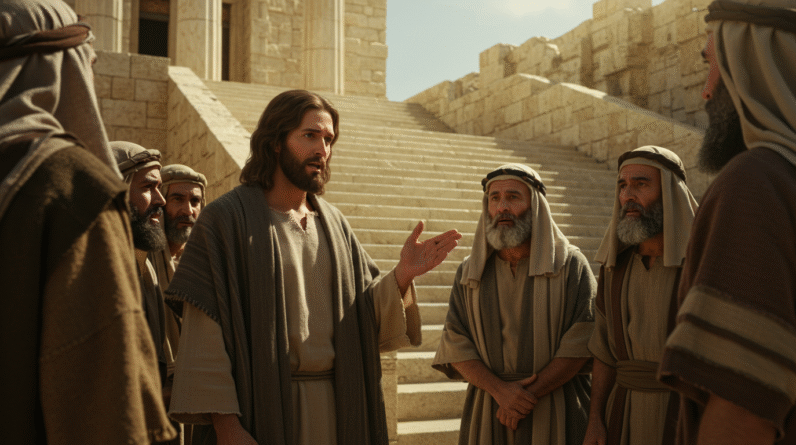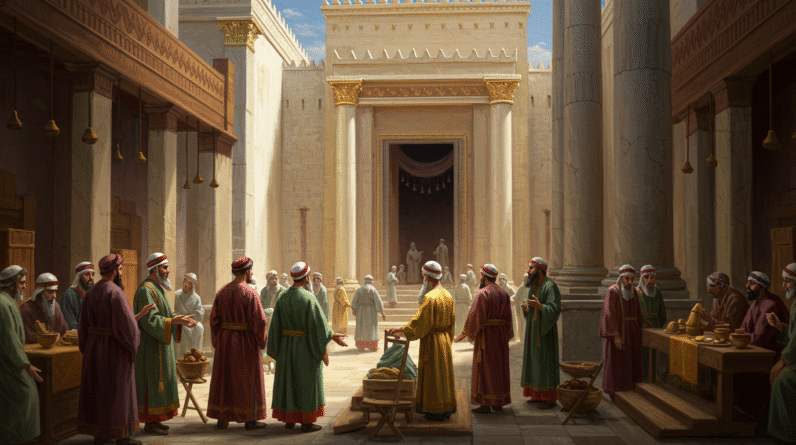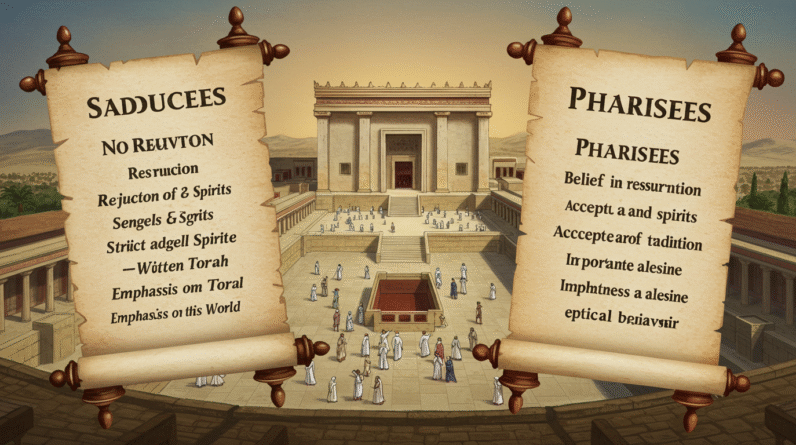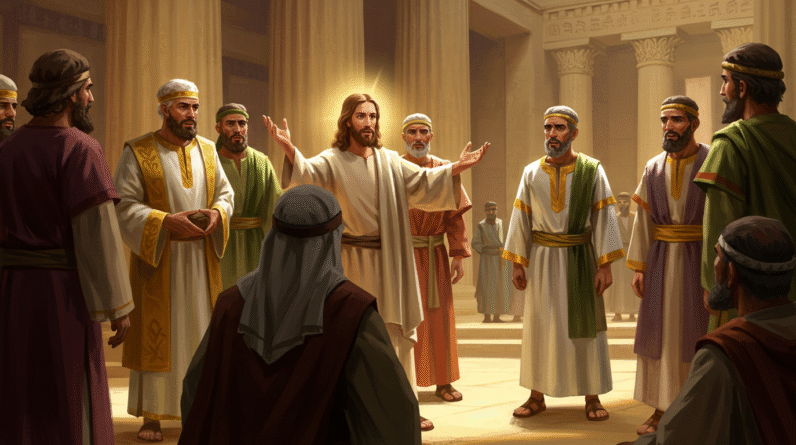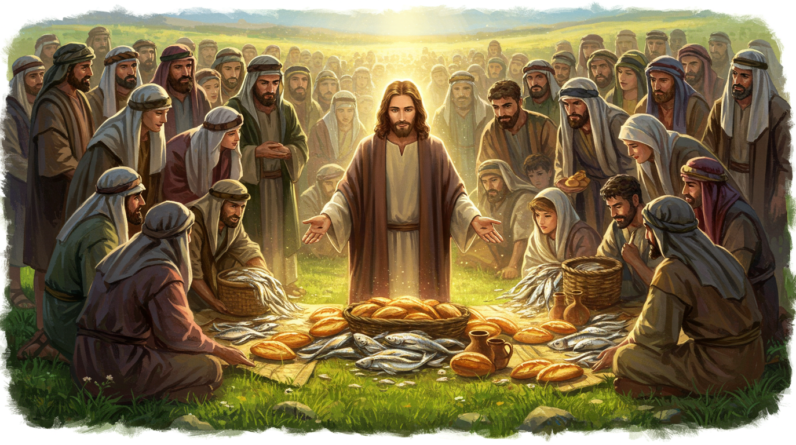Discover the complex enigma of the Amalekites in Exodus 17:8-16 and 1 Samuel 15. Explore themes of faith, obedience, and community in biblical history.
The Amalekites – Exodus 17:8-16; 1 Samuel 15
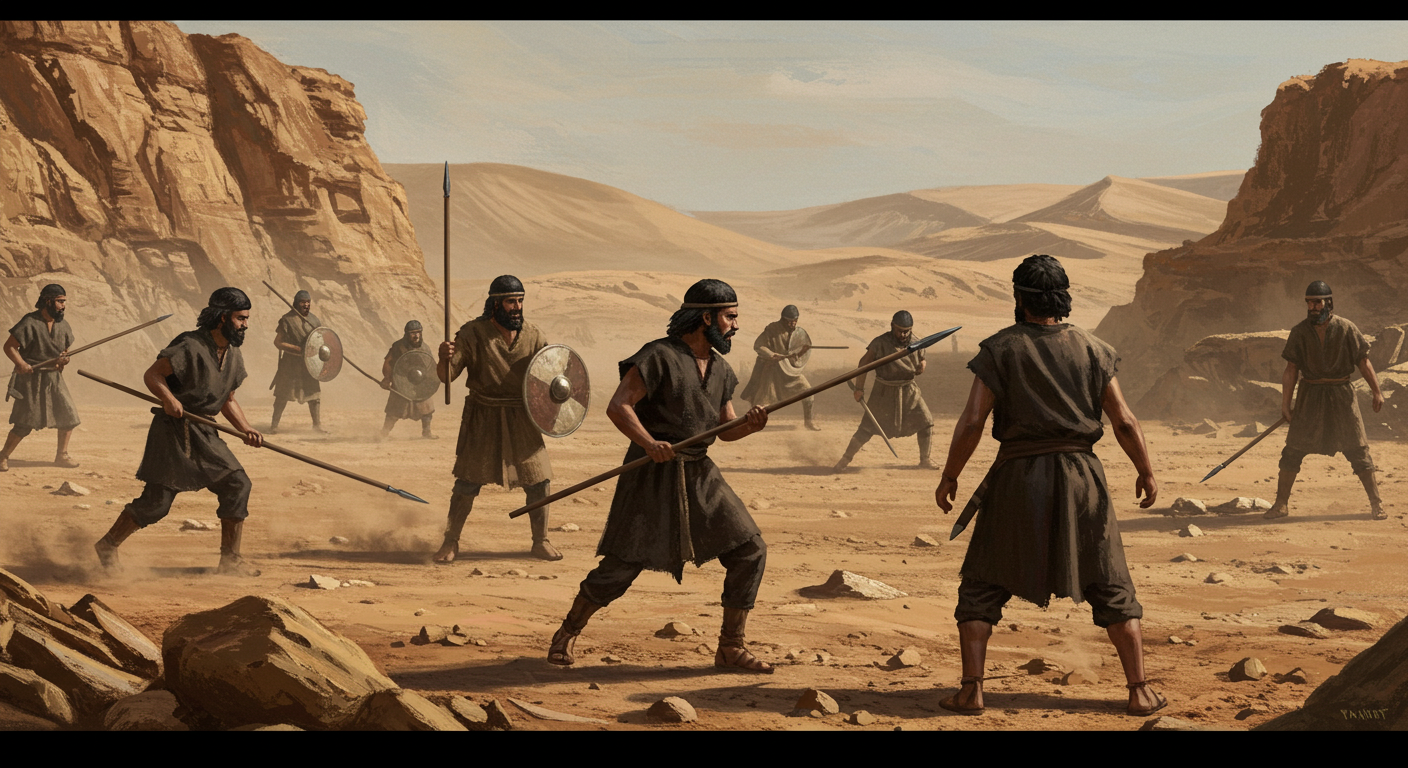
Introduction
Imagine a tribe whose very name sparks narratives of ancient conflict, divine command, and moral scrutiny. The Amalekites, a people scattered through the rough terrains of the Old Testament, serve as a complex enigma in biblical history. At the heart of two significant biblical stories, they leave a mark that stretches beyond their time. In Exodus 17:8-16 and 1 Samuel 15, they emerge not merely as antagonists but as reminders of the nuanced connections between faith, obedience, and history. Through these passages, we’re invited into a conversation about what it means to confront both external and internal adversaries in our journey toward spiritual fulfillment.
Their Story in the Bible
The Battle with Israel – Exodus 17:8-16
In the gritty backdrop of the wilderness, the Israelites faced a sudden and unprovoked attack by the Amalekites, a nomadic tribe noted for their fierce warrior skill. It was the Israelites’ first battle since their dramatic escape from Egypt. As Exodus 17:8-16 recounts, this encounter set the stage for a unique collaboration between divine intervention and human agency. In a striking scene, Moses stood on a hilltop overlooking the battleground with the staff of God in hand. As long as his hands remained lifted, Israel prevailed; when fatigue sank them, the tide turned against them. This evocative imagery not only highlights the pivotal role of leadership and perseverance but indicates the interconnectedness of physical action and spiritual observance. The victory of Israel, aided by Joshua and supported by Aaron and Hur physically upholding Moses’ arms, underscored the crucial lesson of community and support in overcoming immense challenges.
The Command of Annihilation – 1 Samuel 15
Fast-forward to the era of King Saul, where the Amalekites again come under the spotlight in a tale brimming with divine decree and human faltering. 1 Samuel 15 narrates God’s command to Saul to utterly destroy the Amalekites—every man, woman, child, and livestock—as a long-standing retribution for their past transgressions against Israel. Saul, however, swayed by the temptation of wealth and pressured by the people’s voice, spared Agag, the king of the Amalekites, and the best of the spoils. This decision led to his downfall as king, sealing his fate through God’s prophet, Samuel. This chapter becomes a poignant narrative on the importance of complete obedience to divine instruction. Saul’s partial obedience, which he mistakenly equates with faithfulness, becomes his undoing, highlighting the peril of letting human judgment override divine commands, however harsh they may appear.
Lessons from Their Life
Navigating Obedience and Disobedience
The Amalekite narratives teach a complex lesson on obedience. Moses’ and Saul’s experiences diverge starkly: one story of victory through faith-driven action and another of downfall due to reluctance to follow divine orders fully. From Moses, we learn that steadfast adherence, although laborious and challenging, leads to triumph when coupled with faith and community support. Conversely, Saul’s journey serves as a cautionary tale, showing that partial adherence to divine guidance equates to disobedience, with profound consequences.
The Role of Community Support
Embedded within Moses’ lifted arms is a lesson on the strength found in the community. Leadership and persistence are supported by the willingness of others to uplift and share burdens. This imagery invites a reflection on our journey, urging us to seek and offer helping hands as we navigate life’s battles.
Connection to Today’s World
Drawing parallels from these ancient stories, today’s world finds lessons on leadership, community, and moral integrity. The struggles of the Israelites reflect modern challenges in political, personal, and community spheres. The story of the Amalekites prompts questions about justice and mercy, obedience, and the weight of historical burdens. Today’s leaders can learn from Moses and Saul about the power dynamics between divine responsibility and personal decision-making. The communal spirit that supported Moses symbolizes the importance of unity and support in achieving common goals. The narrative propels us to consider how we address and rectify wrongdoing within our communities, balancing past grievances while moving toward reconciliation and peace.
Key Bible Verse
One powerful verse encapsulating our narrative can be found in Exodus. “Whenever Moses held up his hand, Israel prevailed, and whenever he lowered his hand, Amalek prevailed.” This verse not only signifies the struggle and eventual victory of Israel but also serves as a metaphor for our own lives—signaling the importance of constant vigilance and faith, paired with community efforts, in overcoming trials and achieving success.
Thought-Provoking Question
Reflect on a time when you faced a choice between adhering to a difficult principle or yielding to convenient alternatives. How do the stories of Moses and Saul guide your decisions in such situations?
Historical/Cultural Context
The Amalekites were a nomadic people, believed to inhabit the northern part of the Arabian Peninsula, characterized by their mobility and guerrilla tactics, which contributed largely to their notoriety in biblical history. Their encounters with Israel were pivotal, setting scenes ripe with spiritual symbolism and historical tension. Understanding the harshness of the desert environment and the tribal dynamics of that period offers richer insights into the biblical narratives, shedding light on the lived realities that shaped these events.
A Short Prayer
Gracious God, through the stories of Moses and Saul, you reveal the path of obedience and the pitfalls of partial measure. Help us to seek your guidance fully, to lean on our community in times of need, and to face our challenges with faith and integrity. Amen.



